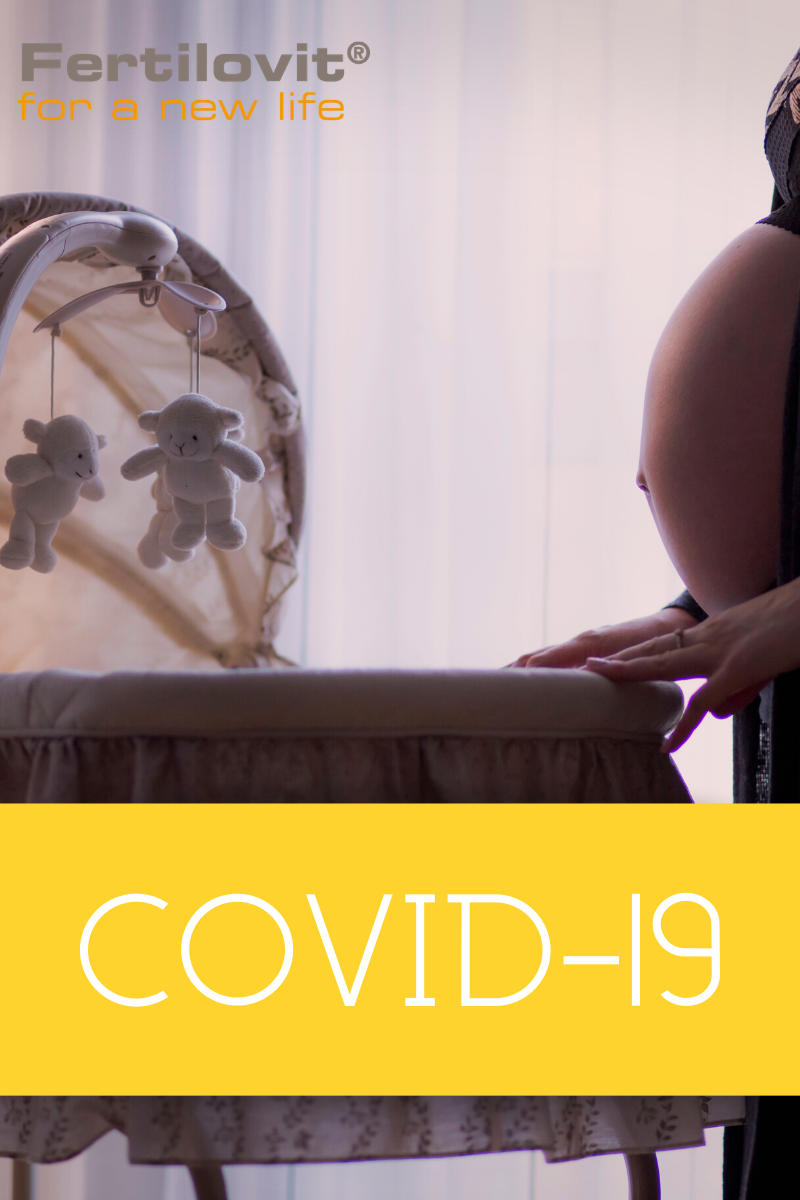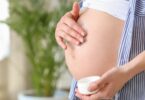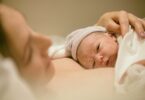With the Coronavirus crisis dominating our lifes in every aspect, pregnant women and those planning for pregnancy are among those of us who are particularly concerned.
Good news first: The European Society for Human Reproduction and Embryology has informed in their statement from 14 March 2020 that there is no strong evidence of any negative effects of Covid-19 infection on pregnancies, especially those at early stages, as indicated by the latest updates from the Centers for Disease Control and Prevention (CDC) in the USA and others in Europe.(1,2)
There are a few reported cases of women positive for Covid-19 who delivered healthy infants free of the disease.(3) There have been reports of adverse neonatal outcomes (premature rupture of membranes, preterm delivery) in infants born to mothers positive for Covid-19 during their pregnancy, but the reports were based on limited data.(4) Similarly, one case report has been published of an infected infant, but again there was no strong evidence that this was the result of vertical transmission.(5)
These data, although encouraging, only report small numbers and must be interpreted with caution. They refer to pregnancies in their final stages, but we have no information on the possible effect of Covid-19 infection on pregnancies in their initial stages.(6)
However, in view of the above considerations and the maternal and neonatal outcomes reported in cases of other coronavirus infections (such as SARS), ESHRE continues to recommend a precautionary approach.(7) It is also important to note that some of medical treatment given to severely infected patients may indicate the use of drugs which are contraindicated in pregnant women.
As a precautionary measure – and in line with the position of other scientific societies in reproductive medicine – ESHRE advises that all fertility patients considering or planning treatment, even if they do not meet the diagnostic criteria for Covid-19 infection, should avoid becoming pregnant at this time. For those patients already having treatment, considering deferred pregnancy with oocyte or embryo freezing for later embryo transfer is suggested.
ESHRE further advises that patients who are pregnant or those (men and women) planning or undergoing fertility treatment should avoid travel to known areas of infection and contact with potentially infected individuals.
In addition to these and the other usual precautions, many experts recommend vaccination against influenza, not least to avoid double infection of COVID-19/ SARS-CoV-2 and influenza. This applies both to unvaccinated pregnant women and to unvaccinated women wishing to have children. There is no risk to pregnant women from vaccination against the influenza virus. Pregnancy is therefore not a contraindication to flu vaccination. Vaccination against influenza is even expressly recommended for pregnant women. The Standing Commission on Vaccination in Germany (STIKO) recommends influenza vaccination for all pregnant women from the second trimester of pregnancy, in case of increased health risk due to a basic condition (e.g. asthma or diabetes) from the first trimester of pregnancy.
- https://www.cdc.gov/coronavirus/2019-ncov/prepare/pregnancy-breastfeeding.html?CDC_AA_refVal=https://www.cdc.gov/coronavirus/2019-ncov/specific-groups/pregnancy-faq.html
- https://www.rcog.org.uk/globalassets/documents/guidelines/coronavirus-covid-19-infection-in-pregnancy-v2-20-03-13.pdf
- Chen H, Guo J, Wang C, et al. Clinical characteristics and intrauterine vertical transmission potential of COVID-19 infection in nine pregnant women: a retrospective review of medical records. Lancet 2020; doi.org/10.1016/S0140-6736(20)30360-3
- Liu Y, Chen H, Tang K, Guo Y. Clinical manifestations and outcome of SARS-CoV-2 infection during pregnancy. J Infection 2020; doi.org/10.1016/j.jinf.2020.02.028
- Wang X, Zhou Z, Zhang J, et al. A case of 2019 Novel Coronavirus in a pregnant woman with preterm delivery. Clinical Infectious Diseases 2020; doi.org/10.1093/cid/ciaa200
- Liang H, Acharya G. Novel corona virus disease (COVID-19) in pregnancy: What clinical recommendations to follow? AOGS 2020; doi.org/10.1111/aogs.13836
- Schwartz DA, Graham AL. Potential and maternal infant outcomes from coronavirus 2019-nCoV (SARS-CV2) infecting pregnant women: Lessons from SARS, MERS, and other coronavirus infection. Viruses 2020; doi.org/10.3390/v12020194
Further references
* https://www.who.int/emergencies/diseases/novel-coronavirus-2019
* https://www.iffs-reproduction.org/page/COVID-19







